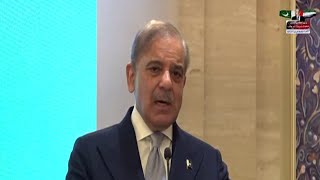 LONDON: Israeli Prime Minister Benjamin Netanyahu appeared resigned on Thursday to a possible meeting between US President Donald Trump and Iranian President Hassan Rouhani, after voicing opposition to world powers opening a dialogue with Iran.
LONDON: Israeli Prime Minister Benjamin Netanyahu appeared resigned on Thursday to a possible meeting between US President Donald Trump and Iranian President Hassan Rouhani, after voicing opposition to world powers opening a dialogue with Iran.
The Israeli leader, who earlier in the day asserted that this was not the time to hold talks with Iran, said he recognized the possibility of a Trump-Rouhani meeting, and that it was not up to him to tell Trump with whom he could meet.
"I'm sure Trump will take a much tougher position," Netanyahu told reporters travelling with him to London, an official in the prime minister's office later said.
This was more restrained than a statement he made earlier in the day when he was on route to meet British Prime Minister Boris Johnson: "This is not the time to hold talks with Iran. This is the time to increase the pressure on Iran."
That comment had marked rare public discord between the right-wing Israeli leader and Trump on the Iranian nuclear issue.
Netanyahu had previously counselled France against its own outreach to Iran.
On Wednesday, Trump left the door open to a possible meeting with Iranian President Hassan Rouhani at the upcoming UN General Assembly in New York, saying: "Anything's possible. They would like to be able to solve their problem."
The Israeli leader, who is fighting for his political life in an election on Sept. 17, regularly touts his influence with Western leaders, especially fellow rightwingers such as Trump and Johnson, as vital for Israeli security.
His opponents say his closeness to rightwing figures abroad hurts Israel by making support for it a partisan issue in friendly countries.
Netanyahu later met US Defense Secretary Mark Esper.
Tehran has rejected any negotiations with Washington unless Trump drops sanctions he imposed after quitting the 2015, Iranian nuclear deal, an agreement Netanyahu had savaged as inadequate.
Iran has said that, starting on Friday, it would begin developing centrifuges to speed up the enrichment of uranium, which can produce fuel for power plants or for atomic bombs. The Iranians deny seeking nuclear weapons.
The centrifuge move would be Iran's latest reduction of its commitments to restrict nuclear projects under the 2015 deal.
Netanyahu called this "another violation, another provocation by Iran, this time in the realm of its quest for nuclear weaponry".
Meeting Johnson at 10 Downing Street, Netanyahu praised the politically embattled British leader for his "staunch stance against anti-Semitism and ... support for Israel's security".
A Downing Street spokesperson later said the two leaders "agreed on the need to prevent Iran getting a nuclear weapon and stop wider destabilising Iranian behaviour," while Johnson "stressed the need for dialogue and a diplomatic solution."
Like other European partners to the Iran nuclear deal, Britain was worried by the US withdrawal. Johnson, while openly sympathetic to Israel, wants to preserve a vision of Palestinian statehood that has eroded under Netanyahu's tenure.
Netanyahu - who has doubled as defence minister for the past 10 months, a period of stepped-up Israeli operations against Iranian targets in the region - brought his air force chief and top military mission planner for the London meeting with Esper.
Israeli Foreign Minister Israel Katz told Ynet TV that Netanyahu and Esper would discuss "everything that happens in the space between Syria, Lebanon, Iraq," an allusion to the often clandestine Israeli military campaign.






















Comments
Comments are closed.